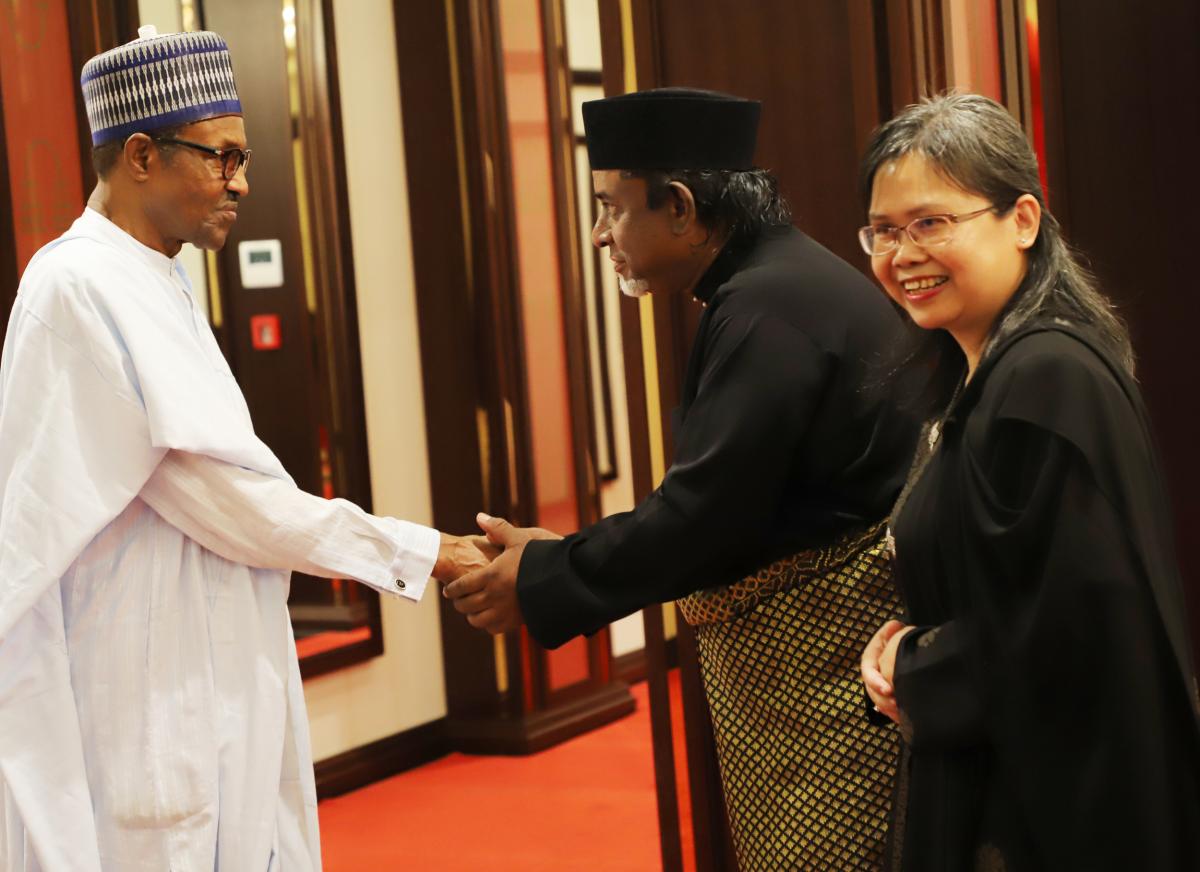There are no products in your shopping cart.
| 0 Items | £0.00 |


Ayo Akinfe
[1] We like to blame colonialism for all our woes but after 50 years as an independent nation, that excuse was no longer tenable. On August 31 1957, Malaya gained independence from Britain. Like Nigeria, she was ruthlessly colonised by the British but had to be let go after World War Two.
[2] A gentleman named Tunku Rahman, was the first Malaysian prime minister, taking office some five months after Kwame Nkrumah in Ghana. Mr Rahman served as both Malaya's first prime minister (1957-63) and upon its formation Malaysia's (1963-1970).
[3] Malaysia’s history is not too dissimilar from ours. On the first of February 1948, nine Malay sultanates and two British straits settlements Penang and Malacca formed the Federation of Malaya. On August 41 1957 the Federation of Malaya gained independence from Great Britain, then on September 16 1963, the Federation of Malaysia was formed by Malaya, Singapore, British North Borneo (Sabah) and Sarawak. On August 9 1965, Singapore separated from the Federation of Malaysia and gained its independence
[4] Malaysia has, however, gone from strength to strength since independence. In Mr Rahman and Dr Mohammed Mahathir, they had two focused leaders with ambitious plans to industrialise the country. Do you know that after independence, Malaysia’s gross domestic product (GDP)grew at an average of 6.5% per annum for almost 50 years?
[5] Like Nigeria, Malaysia is multi-ethnic and multi-cultural, which plays a large role in its politics. About half the population is ethnically Malay, with large minorities of Malaysian Chinese, Malaysian Indians and indigenous peoples. However, they have not let this divide them as we have done in Nigeria. When I look at the antics of some of out ethnic extremists, I shudder. Unfortunately, this infinitesimal minority have too much influence over the masses. Like Malaysia, Nigerians have to learn to turn a deaf ear to their divisive messages and antics
[6] According to the Global Competitiveness Report 2018, the Malaysian economy was the 25th most competitive country in the world in 2018/19. Ask yourselves how competitive the Nigerian economy is compared with other developing nations. Is our unit-per-head output of cocoa, palm oil, cassava, rice, onions, maize, etc able to match those of say Brazil, India, Mexico, Malaysia, Indonesia, Thailand, etc?
[7] Malaysia’s economy is highly robust and diversified with the export value of high-tech products in 2015 standing at $57.258bn. This is more than double the paltry $25bn Nigeria earns from crude oil sales,which account for about 90% of government revenue
[8] Malaysia's industrial sector accounted for 36.8% of the country's GDP in 2014 and employed 36% of the labour force in 2012. For instance, Malaysia’s electrical and electronics industry accounts for 32.8% of the country’s exports
[9] Malaysia is a major hub for electrical component manufacturing, with factories of international companies like Intel, AMD, Freescale Semiconductor, ASE, Infineon, STMicroelectronics, Texas Instruments, Fairchild Semiconductor and Renesas, X-Fab. It also has its home grown companies like Green Packet, Silterra, Globetronics, Unisem and Inari which have contributed to the steady growth of the semiconductor industry
[10] In addition, Malaysia is a major hub for solar equipment manufacturing, with factories of companies like First Solar, Panasonic, TS Solartech, Jinko Solar, JA Solar, SunPower, Hanwha Q Cells, and SunEdison. Also, the automotive industry in Malaysia consists of 27 vehicle producers and over 640 component manufacturers. with an annual production output of over 500,000 vehicles, employing over 700,000 people. In 2002, Proton helped Malaysia become the 11th country in the world with the capability to fully design, engineer and manufacture cars from the ground up.